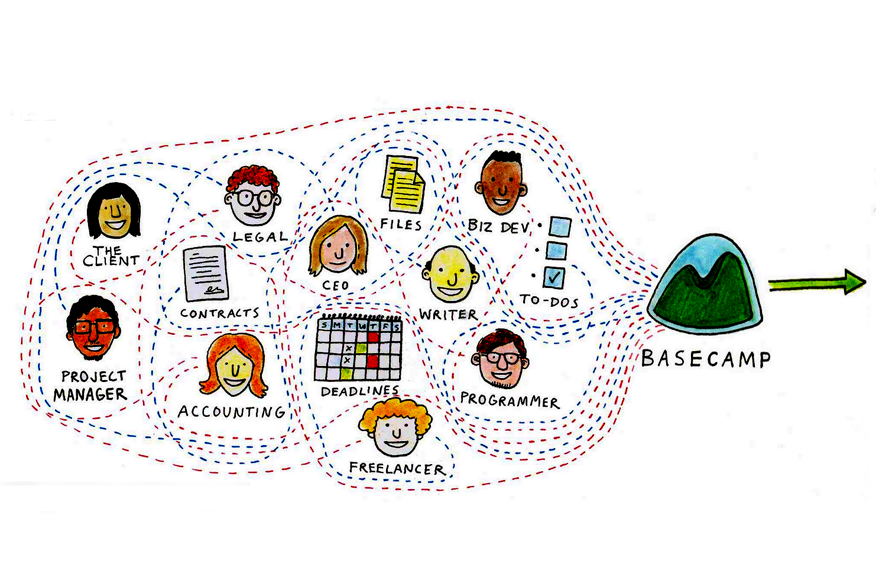
If you own or run a small business, it shouldn’t come as a shock to you that brand building is one of the key components to achieving success. Brand recognition is a major factor for customers when deciding on which products or services to buy or use, so one of your main goals should be to make people familiar with your brand or company name, as well as get them to understand your mission statement so they build trust.
One of the best ways to achieve this goal is with direct marketing. Direct marketing is an advertising strategy that gives businesses, brands, and organisations the chance to communicate directly with potential and current customers. This can be achieved through a number of different media, but should be well planned and thought out because it’s a rather aggressive marketing strategy. Going full speed ahead may overwhelm or annoy your target audience, which you absolutely don’t want, so you should fully understand what direct marketing is and plan out your campaigns carefully.
The goal is to get your audience to take action, whatever you determine that to be, whether it’s to download an app, sign up for your newsletters, make a purchase, or follow your social channels. The action should also result in tangible and measurable results, like the aforementioned examples; if it doesn’t, you should re-evaluate your goal for the campaign.
You can get creative with your campaigns. In fact, you want to stand out from your competitors, so it’s not just recommended to be creative, it’s basically necessary. Plus, you want to keep your audience interested and engaged, and your run-of-the-mill cookie-cutter campaign just won’t be enough to hold their attention.
The type of direct marketing campaign that will be successful for you will depend on your industry and what your business’s goal is, what your budget is, and who you’re targeting. In order for your campaign to generate a successful return on investment, you should firstly understand who exactly your audience is, because even with the most creative, compelling and unique campaign, if you’re targeting the wrong people or do not have a good insight into their needs, the whole effort can fall flat or on deaf ears.
A major benefit to direct marketing is that there are so many varieties of campaigns, that if one approach doesn’t work out, you can easily try a different approach. Here are three simple ways your small business can market directly to your customers.
Ringless Voicemail Campaigns
Marketers shouldn’t overlook the effectiveness of direct phone marketing campaigns. When done correctly, telemarketing can be highly effective; however, more people are ignoring calls from numbers they don’t recognise, which can make it a bit tricky to reach the people you want. Interestingly enough, most people are much more likely to respond to a voicemail, regardless of whether they know the number or not.
Want to know how to leave a voicemail without calling? The answer is with ringless voicemail. You can make phone calls that go direct to voicemail so you can deliver your pre-recorded message to however many contacts you have on your list, in minutes. Your audience won’t be disturbed, and they can listen and respond to your message at their convenience.
Direct Email Marketing Campaigns
This is the most common type of direct marketing because it’s the simplest to automate and it’s usually quite cost-effective. Email campaigns are typically formatted like web-based advertisements rather than your usual email message, with more and more brands turning to bright, bold colours and integrating gifs or videos to catch their audiences’ attention.
To differentiate your campaign from spam mail, it’s recommended you segment your customers and target the campaign to a specific group of people so it feels more personalised. You can go as far as using personalisation techniques to address the email to the individual that it’s being sent to, so it feels less like a mass email and more like a tailored message directly for them.
Email campaigns are also great for drip marketing strategies. Using pre-written emails, you can set parameters to start the ‘drip’ when a customer completes a certain action, like signing up for your company’s emails, completing a purchase, or abandoning their cart.
Targeted Online Advertising Campaigns
Targeted advertising can take place on social media or around the web, and both methods can be highly effective either separately or run parallel as part of a larger advertising effort. Again, this type of direct marketing campaign relies on market segmentation, so you need to know your target audience, what their needs are, where they spend their time online, and what kind of messaging resonates with them before you can start serving them with highly targeted ads.
Once you’ve done your research on your audience, you can target them on social media via Facebook and Instagram, for example. You can create lists of people who engaged with your ad in any way, like commenting or ‘liking’ the post, and serve them similar ads in the future. You can also install tracking cookies so they see your brand’s advertisements on other websites they visit, outside of social media.
However, because people are becoming more aware of highly targeted ads, and some are concerned about privacy, you shouldn’t use this method to aggressively market your product or service specifically, but to personalise your customer’s experience with your brand. If you know a segment of your audience enjoys vacationing during the winter, for example, you could target your ads to position a relevant product or service that can help them achieve their vacation goals. You don’t want your audience to think your brand is ‘stalking’ them online, but rather you want to make their online shopping experience convenient by showing them a solution to their problem they didn’t realise they needed.
By employing these direct marketing campaigns either separately or in tandem, you can create a successful marketing strategy that encompasses all aspects of digital and traditional advertising. As long as you set realistic goals to hit, fully understand your target audience, and keep the experiences personalised rather than overly intrusive, your efforts will be sure to yield success for your brand.
Contributed content

Founder Dinis Guarda
IntelligentHQ Your New Business Network.
IntelligentHQ is a Business network and an expert source for finance, capital markets and intelligence for thousands of global business professionals, startups, and companies.
We exist at the point of intersection between technology, social media, finance and innovation.
IntelligentHQ leverages innovation and scale of social digital technology, analytics, news, and distribution to create an unparalleled, full digital medium and social business networks spectrum.
IntelligentHQ is working hard, to become a trusted, and indispensable source of business news and analytics, within financial services and its associated supply chains and ecosystems





























